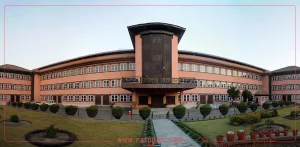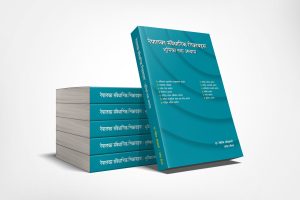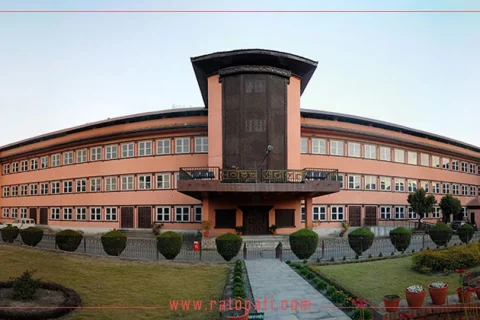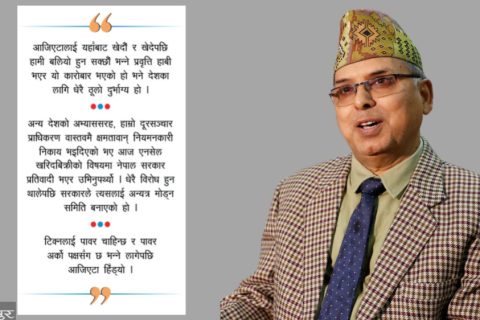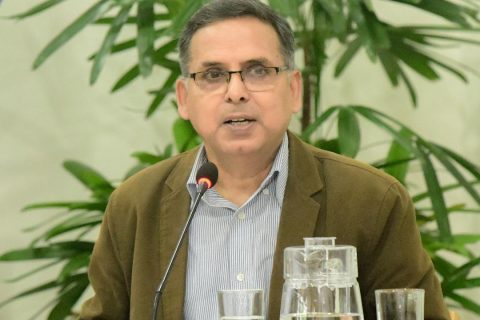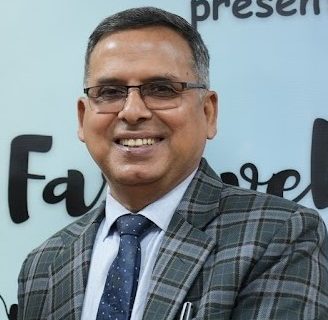A sizeable section of Nepali Congress leaders has been batting for “early” elections in April-May, proposing local and provincial elections in October-November 2022. They believe such an arrangement could help address some internal issues, as the party is planning its general convention in November. According to leaders, parliamentary elections before the local and provincial elections could be helpful in managing internal party disputes.
An “early” election has been in the debate among some sections of parties for quite a while. There are different views on whether it is possible.
Leaders from the ruling coalition as well as constitutional and legal experts say there are challenges galore.
“Once the present House enters its fifth year, the prime minister can dissolve the House and declare elections, provided that there is consensus between the ruling alliance and the opposition party,” said Bipin Adhikari, former dean of the Kathmandu University School of Law.
The current Parliament first met on March 5, 2018, having been elected from the elections held in November-December 2017. It’s five-year term will be completed in March, 2023. Technically, the country needs to go to the polls to elect a new Parliament in November-December 2022.
“The Supreme Court ruling does not stop the government from announcing elections six months prior to the completion of the House’s five-year term. But to do that, the prime minister has to dissolve the House,” said Adhikari.
Can Prime Minister Sher Bahadur Deuba dissolve the House just for the sake of early elections?
There is no easy answer.
For an automatic dissolution of the House, Deuba needs to lose a vote of confidence. Deuba won the vote of confidence on July 18 with the backing of 184 lawmakers, following his appointment as prime minister as per a July 12 Supreme Court order.
Many within the Nepali Congress wonder on what moral grounds Deuba will dissolve the House in favour of early elections, as his coalition partners would argue that their “fight” was to ensure the Parliament’s full term.
Deuba’s appointment as prime minister followed two House dissolutions by erstwhile prime minister KP Sharma Oli—in December last year and May this year.
The Communist Party of Nepal (Maoist Centre), the CPN (Unified Socialist) and the Janata Samajbadi Party are Deuba’s coalition partners. They fought against Oli and made efforts to install Deuba arguing that Oli tried to kill the House prematurely and that the House must complete its full five-year term.
“It is not possible to hold early elections in April-May as some are suggesting,” said Narayan Kaji Shrestha, a Maoist Centre leader. “We can hold elections six months before the current Parliament completes its full term in March 2023. But parliamentary elections in April-May are unlikely. We won’t be able to justify that.”
When asked whether the ruling alliance is considering a plan to hold elections for three tiers of government (local, provincial and federal), Shrestha said he has not heard about it.
The Congress-Maoist Centre alliance, backed by Madhav Nepal, who now leads the CPN (Unified Socialist), and the Janata Samajbadi Party may have been able to unseat Oli, but distrust and disagreement between them run deep.
Madhav Nepal formed the CPN (Unified Sociliast) on August 26 after his months-long struggle against Oli.
Insiders say the Maoist Centre, the CPN (Unified Socialist) and the Janata Samajbadi Party are not keen on holding early parliamentary elections for one reason—none of them is confident about winning “enough” seats.
Early elections could benefit Deuba. And Oli will be happy to accept early elections, as that justifies his stated position—there is the need to seek a fresh mandate from the people. After all, Oli had dissolved the House twice on the same premise, which was vehemently opposed by other parties. Oli’s House dissolutions, however, were declared unconstitutional by the Supreme Court.
One way early elections can be thrust upon the country is that the government turns into a minority. But Deuba has the support of coalition partners that do not want early elections.
A leader from the ruling coalition said whether Deuba would take the risk of “dissolving” the House to call early polls is a difficult question.
“What if the coalition partners decide not to participate in the elections saying their stated position is that the current Parliament must complete its full term,” said the leader who did not wish to be named fearing controversy.
Leaders close to Deuba said “no one is actually against early elections”.
“Oli was ousted for his misadventures. The constitution is on track now,” said Ramhari Khatiwada, a leader close to Deuba. “No one will boycott if early elections are held. We have been advising the prime minister to conduct parliamentary elections in April-May. We can then hold local and provincial elections in October-November. This will also honour the verdict of the Supreme Court.”
According to Khatiwada, only a fresh mandate can ensure political stability.
“Anyway, why should the government take the risk of becoming unpopular by leading the current government for a long time, when early elections can be beneficial to our party,” said Khatiwada.
Many within the Congress may agree with Khatiwada, as they believe anti-incumbency can harm the party if the government lasts long, but some are dead against early polls.
“We can hold elections some months before the House completes its five-year term,” said Ram Chandra Poudel, who leads a rival camp in the Congress party. “Holding elections in April-May comes with a lot of legal complications and it would also reflect badly on our party, as we were the ones who called for letting the House complete its full term when Oli tried to kill it twice.”
Upendra Yadav, chair of the Janata Samajbadi Party, also said that elections in April-May are unlikely.
“There is no chance of holding elections in April-May and there should not be anything like early elections, as the House needs to complete its full term,” Yadav told the Post. “The ruling coalition only recently completed Cabinet expansion. There has been no discussion on early elections among the coalition partners.”
Experts on constitutional and legal matters say since Nepali parties have a tendency to not give two hoots about the rule of law, the less said about them is the better. But as far as early elections are concerned, besides legal hurdles, a consensus among the parties is also unlikely, according to them.
“Even if the incumbent prime minister manages to take the opposition into confidence for early polls, there is no certainty his coalition partners will agree to it,” said Adhikari, the law professor. “I doubt leaders from the coalition are ready to go for parliamentary elections in April-May.”


